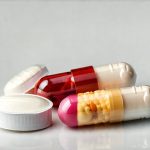Antibiotics are often life-saving medications, crucial for battling bacterial infections like urinary tract infections (UTIs). However, even after the infection itself is resolved, many individuals experience lingering discomfort – specifically, urethral pain. This post-antibiotic urethral irritation can be frustrating and concerning, prompting questions about why it happens and, more importantly, how to find relief. It’s important to understand that this isn’t necessarily a sign of ongoing infection; rather, it often reflects the disruption of the natural bacterial balance within the urinary tract, changes in gut flora impacting overall immune function, or simply inflammation caused by the antibiotic itself.
The sensation can range from mild burning or stinging during urination to a more persistent ache or sensitivity along the urethra. It’s common to feel like you still need to urinate even shortly after emptying your bladder, or to experience increased urgency and frequency. Understanding that this post-antibiotic pain is a fairly common occurrence can be reassuring, but it doesn’t diminish the importance of finding effective ways to manage it and restore comfort. This article will explore practical strategies – focusing on hydration, dietary adjustments, supportive care, and when to seek further medical evaluation – to help ease urethral pain following antibiotic treatment.
Understanding Post-Antibiotic Urethral Pain
The discomfort many experience after finishing antibiotics isn’t always directly related to lingering bacteria. Antibiotics are designed to eliminate both harmful and beneficial bacteria within the body. This widespread disruption of the microbiome, particularly in the gut and urinary tract, can lead to imbalances that contribute to irritation. When the ‘good’ bacteria are reduced, it creates an environment where other organisms may flourish or inflammation persists. This shift in bacterial populations can impact the natural protective mechanisms of the urethra and bladder, leading to increased sensitivity.
Furthermore, some antibiotics themselves can cause localized irritation as they pass through the urinary tract. This is especially true for certain types of antibiotics known to be more aggressive on delicate tissues. Even after the antibiotic course is complete, this initial inflammation may take time to subside. It’s also worth noting that prolonged or frequent antibiotic use can increase the risk of developing antibiotic resistance in bacteria, making future infections harder to treat and potentially exacerbating post-treatment discomfort.
Finally, dehydration plays a significant role. Antibiotics often have diuretic effects (increasing urination), which, if not countered with adequate fluid intake, can concentrate urine and further irritate the urethra. The concentrated urine contains higher levels of waste products that can exacerbate inflammation. Staying well-hydrated is paramount to minimizing irritation. If you are concerned about recurring UTIs, consider reading stay UTI-free.
Supportive Care & Lifestyle Adjustments
Beyond simply waiting for the discomfort to fade, several proactive steps can significantly ease post-antibiotic urethral pain. Focusing on rebuilding a healthy microbiome and supporting your body’s natural healing processes are key. Dietary adjustments play a crucial role; incorporating probiotic-rich foods like yogurt (with live cultures), kefir, sauerkraut, and kimchi can help replenish beneficial gut bacteria. A diverse gut microbiome is linked to improved immune function and reduced inflammation throughout the body.
Hydration should be prioritized. Aim for at least 8 glasses of water daily – and potentially more if you’re physically active or live in a warm climate. Avoid excessive caffeine, alcohol, and spicy foods, as these can all irritate the bladder and urethra. Consider incorporating soothing herbal teas like chamomile or ginger (in moderation) into your routine. Loose-fitting clothing made from breathable fabrics can also minimize friction and irritation around the urethral area. Prioritize gentle self-care to promote healing. If you experience pain that spreads, it’s important to understand pain after urination.
Restoring Gut Health
A healthy gut microbiome is crucial for overall health, including urinary tract wellbeing. Antibiotics significantly disrupt this delicate balance, so actively working to restore it is vital. Beyond dietary sources of probiotics, consider a high-quality probiotic supplement – but consult with your healthcare provider before starting any new supplements, as not all probiotics are created equal and some may be more appropriate for specific individuals than others.
- Look for supplements containing multiple strains of beneficial bacteria (e.g., Lactobacillus, Bifidobacterium).
- Ensure the supplement is enteric-coated to protect the probiotics from stomach acid and deliver them effectively to the gut.
- Be patient; it can take several weeks or even months to fully rebuild a healthy gut microbiome after antibiotic use.
Furthermore, prebiotics – non-digestible fibers that feed beneficial gut bacteria – are equally important. Foods rich in prebiotics include garlic, onions, leeks, asparagus, bananas, and oats. Consuming a diet high in fiber supports the growth and activity of these helpful microorganisms, strengthening your overall gut health. A tailored urology diet can also be beneficial.
Managing Urinary Discomfort
Urethral pain often manifests as burning or stinging during urination. Several strategies can help alleviate this discomfort. Firstly, avoid holding your urine – frequent emptying of the bladder prevents stagnation and reduces irritation. Secondly, consider drinking a glass of water before urinating; this can dilute the urine and minimize burning sensations.
- Avoid harsh soaps, douches, or feminine hygiene products that can further irritate the urethra.
- Opt for mild, fragrance-free cleansers when washing the genital area.
- After urination, gently pat dry with a soft towel instead of rubbing.
If discomfort is severe, sitting in a warm bath (sitz bath) can provide soothing relief. Ensure the water isn’t too hot, and limit the soak to 15-20 minutes. Avoid adding any bubble baths or harsh chemicals to the water. Simple measures like these can make a significant difference.
When to Seek Medical Attention
While post-antibiotic urethral pain is often self-limiting, it’s crucial to know when further medical evaluation is necessary. If your symptoms persist for more than a week after finishing antibiotics, or if they worsen despite implementing the strategies outlined above, consult your healthcare provider.
- Severe pain that interferes with daily activities warrants immediate attention.
- Signs of a possible recurrent infection – such as fever, chills, flank pain, blood in the urine, or increased frequency and urgency – should be evaluated by a doctor promptly.
- If you suspect you may have developed antibiotic resistance (e.g., if previous infections are becoming increasingly difficult to treat), seek medical advice.
Your healthcare provider can rule out other potential causes of urethral pain, such as sexually transmitted infections, kidney stones, or interstitial cystitis. They can also recommend further diagnostic tests or treatment options if necessary. Do not self-diagnose or attempt to treat persistent symptoms without professional guidance. If you are experiencing stinging after urination, ease stinging can help provide immediate relief.
It’s important to remember that healing takes time and patience. Post-antibiotic urethral pain is often a temporary inconvenience, but addressing it proactively with supportive care and lifestyle adjustments can significantly improve your comfort and wellbeing during the recovery process.





















